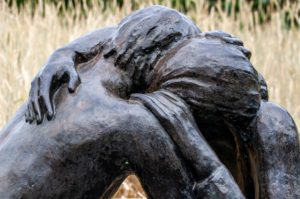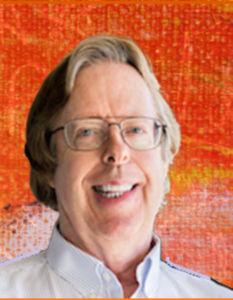Tagged: “peace”
Should we use different words for “student loan forgiveness”?

Image by Pexels.com
In perusing the Internet recently, I frequently read the term “student loan forgiveness”…….again and again…….and again. Setting aside the differences of opinion of whether or not this is a good idea, my point here is to suggest that the term should change. There is a large difference between legal pardon and forgiveness. Legal pardon is not a moral virtue. The one who pardons the loans is not the one who was offended by the loaner. Forgiveness, as a moral virtue, in contrast, is concerned with reaching out to those who have been unfair and hurtful toward the forgiver. Given these distinctions, let us make a turn and refer to the loan issue as “student loan pardon.” Why? It is for this reason: Forgiveness already is misunderstood by many. For example, forgiveness can be erroneously associated with “just giving in” or “letting the hurt go.” If we now equate forgiveness with third-party people taking debt away, we are continuing to move away from the true meanings of the word forgiveness. Let us correct this. Student loan pardon needs to be the new term.
‘Racialized’ Forgiveness?
An author, Myisha Cherry, in the journal, Hypatia in 2021, made the claim that under certain circumstances, forgiveness becomes “racialized.” In her words in that article:
“Cases that exemplify certain conditions that I take as paradigmatic of the problem of racialized forgiveness includes instances in which: A. Who is forgiven or not is (overtly or tacitly) determined by the race of the offender. B. Praise and criticisms of forgiveness are determined by the race of the victim. C. Praise and criticisms of forgiveness are, at least implicitly, racially self-serving.”

Image from Pexels.com
Yet, we would have preferred that the two words, “racialized” and “forgiveness” were not put together because there are no such aspects of true forgiveness. A more appropriate pairing of words would be “racialized pseudo-forgiveness” or “racialized false forgiveness” because that is what is happening. Aristotle reminded us that any moral virtue is bounded by two vices, one which is an under-representation (for example, in the case of forgiveness the person exhibits moral weakness in which others dominate the one who is trying to forgive) and one that is an excess of the virtue (in the case of forgiving, the one who supposedly forgives is actually using forgiveness as a weapon to dominate others). “Racialized false forgiveness” actually is a vice, not a moral virtue, in which the person uses forgiveness to dominate others. This, of course, is not forgiveness at all and it should be recognized as such. To equate “racialized forgiveness” with the true form of forgiveness is philosophically incorrect. Dr. Cherry has a book-length work (Failures of Forgiveness, 2023) in which she continues with these ideas. It is good that she is pointing out this excess of forgiveness, but in the future, this needs to be classified not as the moral virtue of forgiveness but as a distortion of it.
‘Psychology Today’ features Dr. Enright story on becoming proficient in forgiveness!

Image by Pexels.com
Dr. Enright is a regular blog writer for the national magazine, Psychology Today. On Wednesday, May 22, his most recent blog entitled, ‘Growing Proficient in Forgiving: Practice Small Acts of Love’, was featured as the “banner story at the top of the site,” which is similar to being the cover story in a magazine.
Check out the essay by clicking this link!
Sharing the Good News of Forgiveness!
Our founding board member, Dr. Robert Enright, has been busy with media interviews on forgiveness over the past months. Here is a listing of his interviews since December, 2023, starting with the most recent:
Live interview, The Drew Mariani Show (national), Relevant Radio, on the topic of betrayal, forgiveness, and self-forgiveness, March 27, 2024.
Interview with Darcy Sterling, “We Need to Talk” podcast, March 15, 2024.

Dr. Robert Enright
Interview with Julie Cruz, Well Wisconsin Radio Broadcast, March 13, 2024.
Interview with Laura Hearn, Flip It podcast, London, United Kingdom, March 12, 2024.
Interview with Rebecca Randall for a report in the John Templeton Foundation newsletter, March 4, 2024.
Live interview with Liz Saint John, KCBS radio, San Francisco, California, on the topic of forgiveness, December 27, 2023.
Interview with Julien Manuguerra-Patten, BBC’s Sideways program, United Kingdom, on the topic of holding grudges and forgiveness, December 11, 2023.
Live interview with Andy Moore, WORT-FM radio, Madison, Wisconsin, on the topic of forgiveness, December 8, 2023.
Live interview with Kate Archer Kent, “The Morning Show,” Wisconsin Public Radio, on the topic of forgiveness, December 6, 2023.
If you do a simple Google search for ‘Bob Enright Interview’, there are hundreds of thousands of hits! There are plenty of video, podcast, audio, and written interviews with Dr. Enright easily accessible across the internet and each of them helps shed light on forgiveness and its power to bring authentic peace and healing to people, communities, and the world. Check them out!
Dr. Enright discusses ‘Forgiveness is a Choice’ on Relationship Podcast
On April 2, 2024, Dr. Enright appeared on a one-hour podcast on YouTube, We Need to Talk with Dr. Darcy Sterling. Dr. Sterling is a New York City-based relationship therapist and host of E! Network’s Famously Single, who specializes in working with high-performance women who want to prioritize love and relationships.
Sterling describes her forgiveness journey that led her to interview Dr. Enright as follows on the YouTube video description:
“Years ago, I was gutted by a falling out with one of my siblings. It quickly became clear that we were on the verge of estrangement, and that impending loss brought me to my knees — I had just recovered from PTSD and was terrified of getting sucked into the black hole of trauma that I’d just come through.
Frantic for help, I found myself Googling a solution, and up came the term Forgiveness Therapy.
To be clear: I was not feeling forgiving. But I was feeling desperate. I did not want to revisit the darkness I’d just emerged from.
A book on forgiveness had recently been published by a professor named Robert Enright. In it he posits that forgiveness isn’t about cutting the other person slack. It’s a liferaft for people who feel wronged. Enright’s theory had been peer-reviewed — the gold standard in the field of psychology — so, despite my apprehension, I committed to following his program.
Today, my journey through forgiveness comes full circle in my conversation with the theorist himself, Dr. Robert Enright.
If you struggle with anger or are someone who holds grudges and you want to explore a solution, please listen to this episode.
In it, you’ll learn:
Why it makes sense if the thought of forgiving someone who wronged you makes you cringe.
The consequences of not forgiving.
How choosing to forgive puts you in control of your feelings.
How Enright’s program helped me to personally bypass a relapse of PTSD.”
Check out the interview below!



